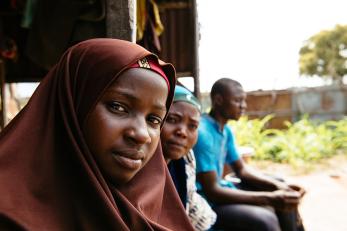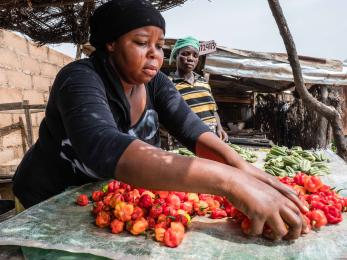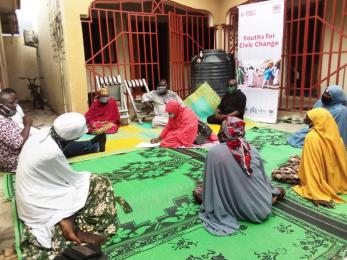Borno Strategic Resilience Assessment

January 16, 2019
Read the Results Synthesis ▸
Read the Full Report ▸
Mercy Corps conducted a Strategic Resilience Assessment (STRESS) in Borno State, Northeast Nigeria, between June 2017 and July 2018. Drawing from both primary and secondary data, the Borno STRESS process aimed to understand resilience dynamics within protracted conflict and identify key capacities to inform a theory of change for strengthening resilience in the immediate and medium-term.
By applying a resilience lens to complex crisis, Mercy Corps also sought to deepen our understanding on the practical application of a resilience approach in protracted humanitarian contexts. Recommendations for response actors aiming to build resilience in these complex environments include:
- Invest in managing future conflict threats that have the potential to develop into new shocks and stresses and disrupt progress towards improved well-being. This includes integrating peacebuilding into ongoing relief and recovery programming as well as layering explicit peacebuilding and conflict management programs alongside them. Current and future conflict risks — such as land access, freedom of movement and inclusion of marginalized groups — must be peacefully managed and their underlying drivers addressed.
- Address chronic underdevelopment challenges that weaken the capacity of local systems to support recovery and development. Alongside continued relief support for conflict-affected populations, foundational development work is critical. This must go beyond rehabilitation of destroyed infrastructure to improving access to quality basic services and strengthening market systems. Assistance should recognize and leverage the power of strong social systems and local strategies that have proven vital for Borno’s citizens to endure ongoing challenges.
- Strategically layer interventions and programs, bringing together elements that reinforce capacities for preventing and managing risk. Tailor activities for vulnerable subgroups and geographic differences in Borno. With both immediate and near-term challenges to progress on the horizon, investment in comprehensive support that is well-targeted, multi-sector and reflective of the interconnected social, political, economic and ecological risk environment is needed.


